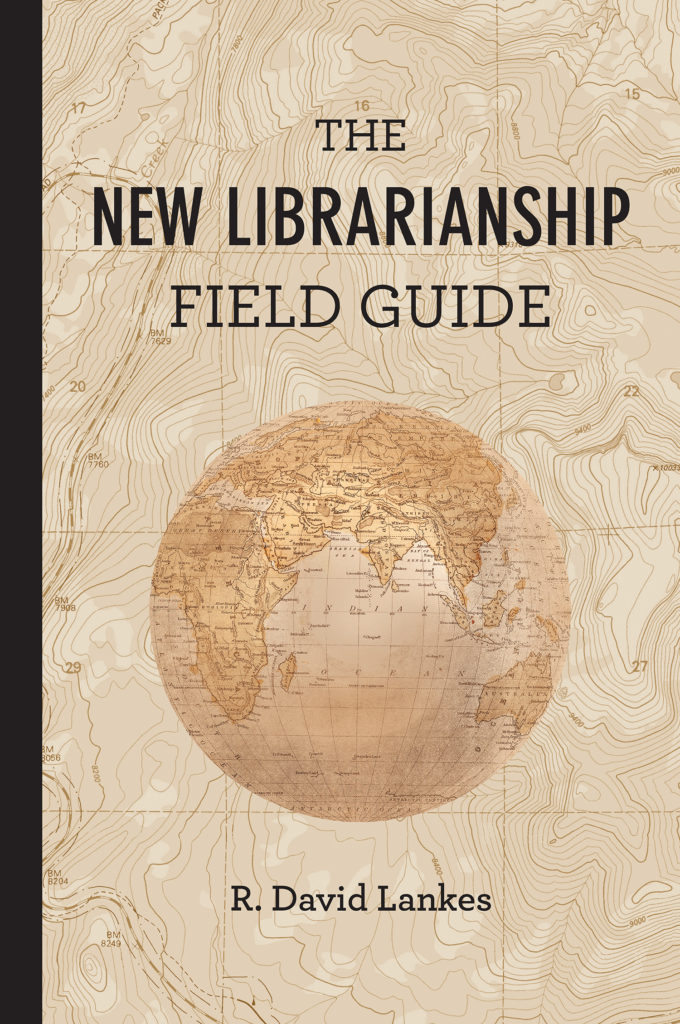This week I’m posting on my new book, The New Librarianship Field Guide. I’ll be talking about what’s in it, but also how it fits with other work like the Atlas of New Librarianship. MIT Press is shipping these now, and Amazon is taking pre-orders with availability starting the week of May 20th.
To kick us off, here is the information from MIT Press’ Catalog.
The New Librarianship Field Guide
 Overview
Overview
This book offers a guide for librarians who see their profession as a chance to make a positive difference in their communities—librarians who recognize that it is no longer enough to stand behind a desk waiting to serve. R. David Lankes, author of The Atlas of New Librarianship, reminds librarians of their mission: to improve society by facilitating knowledge creation in their communities. In this book, he provides tools, arguments, resources, and ideas for fulfilling this mission. Librarians will be prepared to become radical positive change agents in their communities, and other readers will learn to understand libraries in a new way.
The librarians of Ferguson, Missouri, famously became positive change agents in August 2014 when they opened library doors when schools were closed because of civil unrest after the shooting of an unarmed teen by police. Working with other local organizations, they provided children and their parents a space for learning, lunch, and peace. But other libraries serve other communities—students, faculty, scholars, law firms—in other ways. All libraries are about community, writes Lankes; that is just librarianship.
In concise chapters, Lankes addresses the mission of libraries and explains what constitutes a library. He offers practical advice for librarian training; provides teaching notes for each chapter; and answers “Frequently Argued Questions” about the new librarianship.
About the Author
R. David Lankes is Professor and Dean’s Scholar for New Librarianship in Syracuse University’s School of Information Studies.
“David Lankes continues to be a crucial voice in support of libraries as they evolve during tumultuous times. The New Librarianship Field Guide is an invaluable resource for all who care about libraries—and for anyone who wants to help build a bright future for knowledge and democracies in a digital era.”
—John Palfrey, Head of School, Phillips Academy, and author of BiblioTech: Why Libraries Matter More than Ever in the Age of Google
“Libraries + librarians = community: Lankes makes the case and shows his work. He offers a well-structured argument for where libraries in this century need to be going, and how librarians can get them there, answering the question ‘Where in the hell is librarianship going anyhow?’ with charm and grace. Lankes’s invigorating and challenging ideas will help new and existing librarians find their purpose and achieve positive change.”
—Jessamyn West, community technology librarian, Open Library and librarian.net

